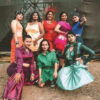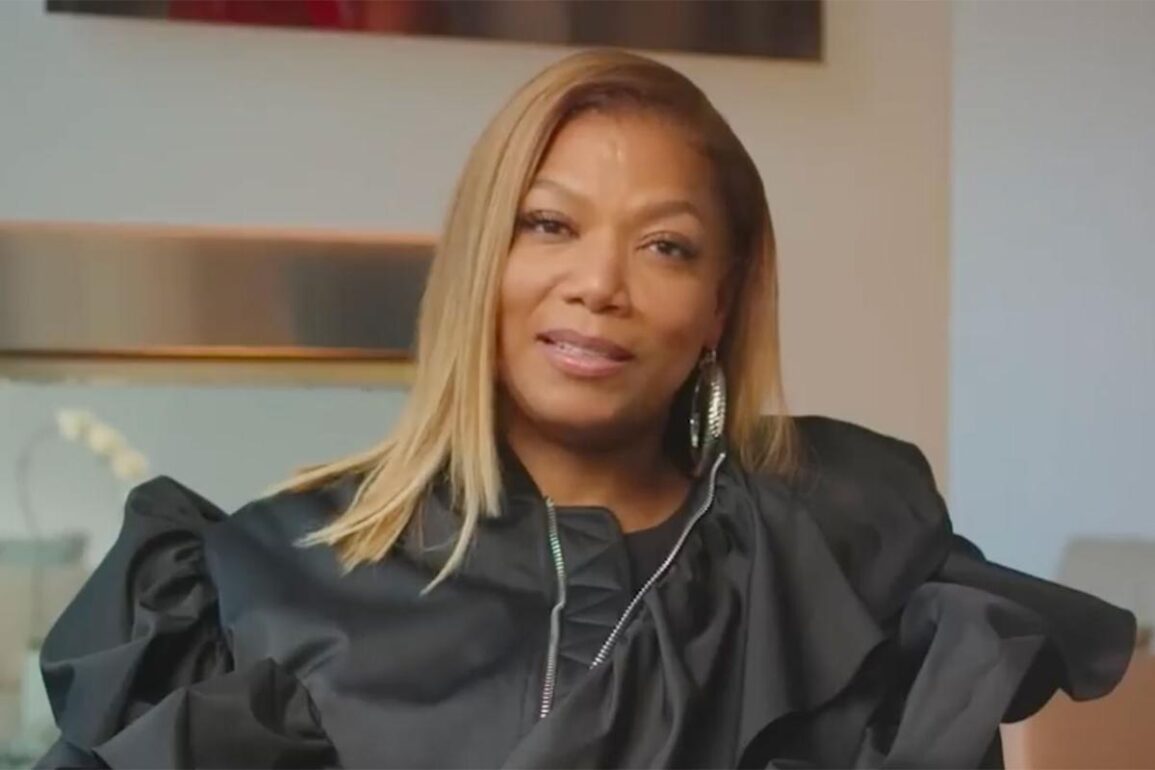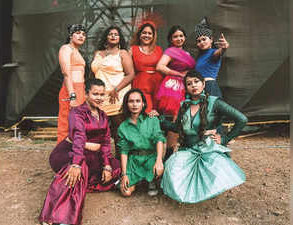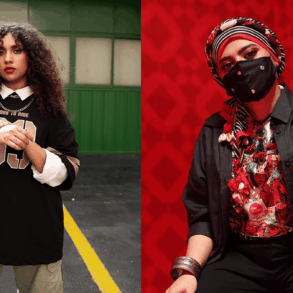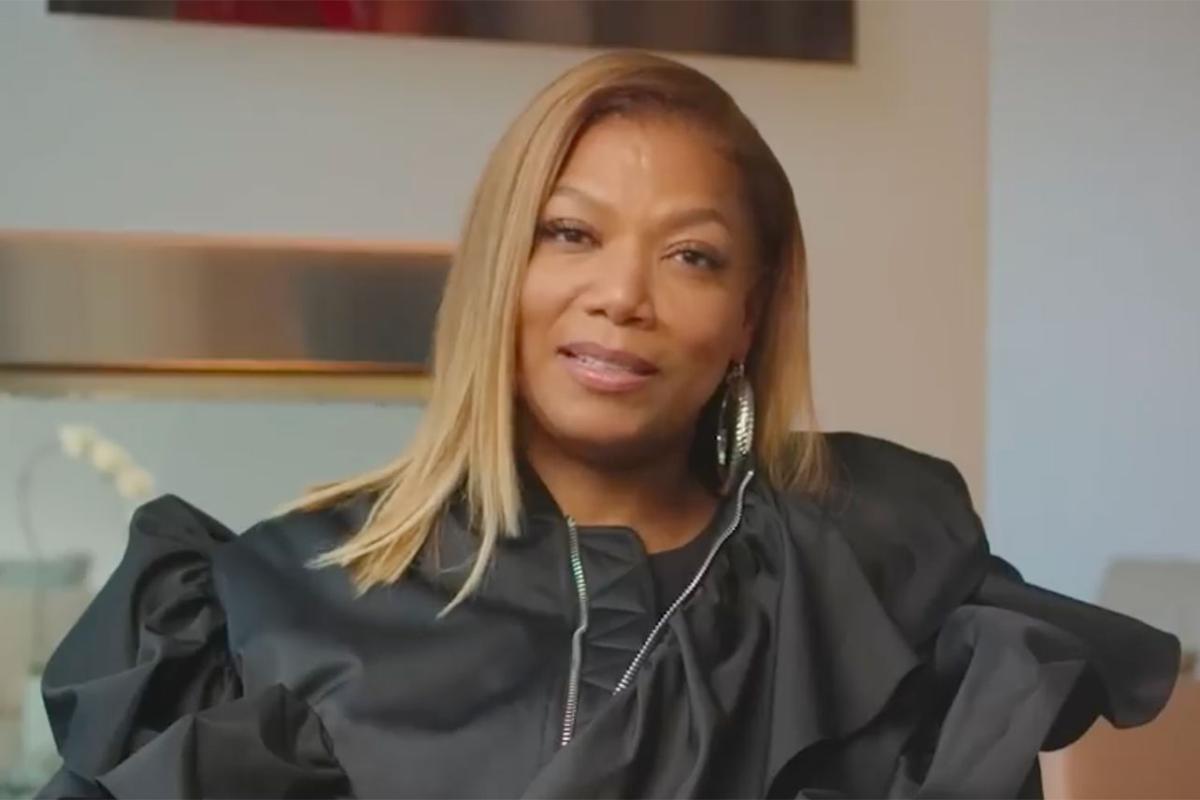
In the four-episode Netflix limited series Ladies First: A Story of Women in Hip-Hop, directed by Academy Award-winning Black Panther production designer Hannah Beachler and filmmaker, producer, and activist Raeshem Nijhon, the story of the genre’s first 50 years is centered on women and their vital role within it – as artists, as creators and supporters, and as carriers of a message to larger audiences and future generations. “Don’t get it twisted – none of this came easy,” says Ladies First narrator Rapsody, and the Grammy-nominated rapper is also featured in interviews alongside Queen Latifah, MC Lyte, Da Brat, Roxanne Shante, Sha-Rock, Tierra Whack, Kash Doll, and Coi Leray.
LADIES FIRST: A STORY OF WOMEN IN HIP-HOP: STREAM IT OR SKIP IT?
Opening Shot: “In the recording of the histories, women are looked at as these exceptions that made it through this male space,” says Dr. Joan Morgan, a writer and the program director of NYU’s Center for Black Visual Culture. Women were seen as exceptions in hip-hop, “as opposed to the people who make the culture, who are shaped by the culture, who live and breathe the culture.”
The Gist: Named for Queen Latifah’s iconic 1989 single, and presented across a span of five connective decades, Ladies First: A Story of Women in Hip-Hop presents as its first voice someone who was there before the genre was even a thing. Sha-Rock, the “Mother of the Mic,” was into breakdancing in her Bronx neighborhood before hip-hop had a name, and before her early singles with the Funky 4 +1 influenced basically everybody. She says it was already an outlet for individual expression and creativity, even if nobody really knew that rap and in turn, women in rap would become a billion-dollar business. But that didn’t stop Sugar Hill Records CEO Sylvia Robinson from working to get “Rapper’s Delight” produced, pressed, and distributed to radio in 1979.
“Shaping Hip-Hop,” its first episode, is presented as side one of the Ladies First four-album set, with songs that include “Building Shit Out of Nothing,” “I Might As Well Tell You Who I Am,” “Fighting the Power,” and “Supa Dupa Fly.” (Later album sides/episodes include “What Are They Up Against?”, “What Have They Lost?”, and “What’s Changing?”) And with Rapsody’s narration as a guide to these songs/chapter headings, the limited series connects the legacies of innovators like Sha-Rock, Roxanne Shante, MC Lyte, and Queen Latifah and Monie Love with artists who received that influence and came after, including Kash Doll, Tierra Whack, Coi Leray, and Rapsody herself. But there are also layers within the layers. After being inspired to rap by Sha-Rock, Lyte highlights how Salt-N-Pepa’s 1986 debut Hot, Cool & Vicious influenced her own first full-length Lyte as a Rock, which appeared two years later.
Artist interviews in Ladies First coincide with some archival deep dives, including footage of Sha-Rock and Roxanne Shante rocking the mic in the late 1970s, and Tierra Whack’s viral moment in 2011, when she first made a YouTube splash as Dizzle Dizz. But there is cultural commentary here, too. The series explores how hip-hop was invited to participate at both a personal and policy level in the aims of the Obama administration, and it features plenty of context from Dr. Morgan, writer and critic Brittney Cooper, hip-hop archivist Syreeta Gates, and feminist scholar and professor Salamishah Tillet.
What Shows Will It Remind You Of? Ladies First co-director Raeshem Nijhon produced Hair Tales, hosted by Tracee Ellis-Ross. PBS worked with Chuck D of Public Enemy to present the four-part docuseries Fight the Power: How Hip Hop Changed the World. And Netflix explored five decades of the genre across four seasons of its series Hip-Hop Evolution.
Our Take: Hip-hop has been in acceleration mode ever since the early 1970s, when its organic growth gave way to an official designation. The rest, it is said, is history, and the genre’s 50th anniversary has produced no small number of ways to tell that story. But as hip-hop and its influence expanded over the decades, it sometimes valued growth over context, and favored loud voices over nuance. Ladies First: A Story of Women in Hip-Hop flips the pages in the book backward and forward at once to establish the perspective of women not only as progenitors of the form, but ambassadors of its aesthetic. It illustrates how women were able to use rap as a platform for their own creativity, but also as an avenue for large-format activism. And it builds a valuable timeline between the women who first made it viable, those who built on that, and a contemporary generation who have arrived to thrive in a landscape forever changed by that earlier work. It’s a story with relevance to hip-hop in general, since it slows the genre’s often relentless pace in order to make its connections more resonant. But it also offers specific examples for anyone listening, from the women and artists who found the volume knob and didn’t let go. “There’s a certain amount of fearlessness,” MC Lyte says in Ladies First, “to not be afraid to speak your truth.” And in that sense, the next 50 years of hip-hop, as it continues to evolve, will likely look and sound very different indeed.
Sex and Skin: Numerous perspectives on sexuality and its representation are part of the discussion in Ladies First, in both a cultural context and as a tool used by individuals for decades to express their point of view.
Parting Shot: “We don’t wait for other people to validate our dopeness,” says pioneering streetwear designer April Walker in Ladies First. “We know we’re dope. They’ll catch up.” And the first segment of the series concludes with a montage of what’s to come, like a discussion about what women are up against as they continue to use their ingenuity, spirit, and determination to shape hip-hop culture.
Sleeper Star: Hip-hop archivist (and LEGO Masters contestant!) Syreeta Gates is a vibrant presence in Ladies First, which she also co-produced, always ready to apply meaning and characterize influence. “It’s a direct line between Missy and Nicki,” Gates says. “Nicki has been able to play with characters and reimagine language in a way that we haven’t seen since a Missy. Also Tierra Whack – a direct connection. The creativity, the boldness, the FEARLESSNESS? It’s easy to play it safe. And those women absolutely said ‘Oh, safe? Safe is up the block and around the corner. We don’t play that game.’”
Most Pilot-y Line: “All of a sudden, all of the possibilities for Black women in this moment become expanded,” explains writer Brittney Cooper. “Hip-hop is a critical part of that conversation. If you can be a former dancer, if you can be a former hustler – if you’re out here and you’re making music and you’re winning, it is putting forth new narratives about who Black women can be.”
Our Call: STREAM IT. As the genre celebrates its 50th anniversary, Ladies First: A Story of Women in Hip-Hop presents an important perspective on rap as an art form expressed in music, in language, and in visual aesthetics, with women as key components in each of those tenets.
Johnny Loftus is an independent writer and editor living at large in Chicagoland. His work has appeared in The Village Voice, All Music Guide, Pitchfork Media, and Nicki Swift. Follow him on Twitter: @glennganges
This post was originally published on this site be sure to check out more of their content.


